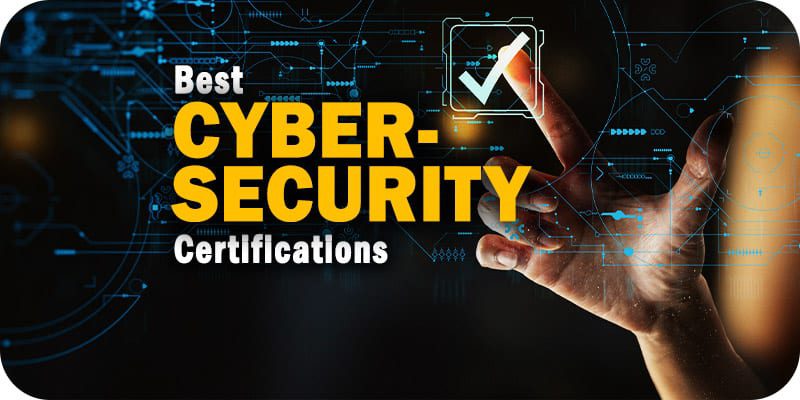What is Cyber Security and Why is it Important?
Cyber security, also known as information technology security or electronic information security, is the practice of protecting computer systems, networks, programs, and data from unauthorized access, misuse, modification, or destruction. In today’s highly interconnected and digitized world, cyber security has become an essential aspect of safeguarding sensitive information, maintaining business continuity, and ensuring personal privacy.
The importance of cyber security cannot be overstated. With the increasing reliance on technology and the internet, cyber threats have become more sophisticated and widespread. Cyber attacks can have devastating consequences, including financial losses, data breaches, intellectual property theft, and disruption of critical infrastructure.
Cyber threats can take various forms, such as:
- Malware: Malicious software designed to gain unauthorized access, disrupt operations, or steal data. Examples include viruses, worms, Trojans, and ransomware.
- Phishing Attacks: Attempts to trick individuals into revealing sensitive information, such as login credentials or financial data, through fraudulent emails, websites, or messages.
- Distributed Denial of Service (DDoS) Attacks: Overwhelming systems or networks with excessive traffic, rendering them unavailable to legitimate users.
- SQL Injection Attacks: Exploiting vulnerabilities in web applications by injecting malicious SQL code, potentially allowing unauthorized access to databases.
- Social Engineering Attacks: Manipulating individuals into divulging confidential information or performing actions that compromise security.
Cyber security measures are crucial for individuals, businesses, and governments alike. Effective cyber security strategies can help prevent data breaches, protect intellectual property, maintain business continuity, and safeguard critical infrastructure from cyber threats.
Table of Contents
Convenience and Flexibility of Online Cyber Security Courses
Online cyber security courses offer unparalleled convenience and flexibility, allowing you to learn at your own pace and on your own schedule. With no need to commute to a physical classroom, you can access course materials and lectures from anywhere with an internet connection, making it easier to balance your education with work, family, and other commitments.
The self-paced nature of many online courses means you can progress through the material at a speed that suits your learning style, whether you prefer to move quickly or take more time to fully grasp complex concepts. Additionally, the flexibility of online learning allows you to revisit lectures and course materials as needed, ensuring a thorough understanding of the subject matter.
Here is a draft H2 section and content focused on cyber security courses covering ethical hacking, network security, information security, cloud security, and digital forensics:
Explore Cutting-Edge Cyber Security Courses Online
Cyber threats are increasing exponentially, making cyber security one of the most in-demand and fastest-growing career fields. To combat these threats, organizations desperately need professionals skilled in ethical hacking, network security, information security, cloud security, and digital forensics.
Ethical hacking courses teach you to think and act like a hacker, but in a legal and legitimate way to probe system vulnerabilities before malicious hackers can exploit them. You’ll learn techniques like penetration testing, social engineering, and how to develop secure code to prevent cyber attacks.
Network security courses cover designing, implementing, and maintaining secure computer networks to protect against unauthorized access, misuse, and cyber threats. Key topics include firewalls, VPNs, wireless security, cryptography, and incident response.
Information security courses focus on protecting data and information systems from cyber threats through access controls, risk management, disaster recovery planning, and security auditing. You’ll gain skills for roles like security analyst, security architect, and chief information security officer.
Cloud security has become critical as more data, applications and IT infrastructure moves to the cloud. These courses cover securing public, private and hybrid cloud environments, data privacy, regulatory compliance, identity and access management for the cloud.
Digital forensics courses teach procedures for properly identifying, preserving, analyzing and presenting digital evidence for cyber crimes and data breaches. You’ll learn investigative techniques, evidence handling, forensic tools, and reporting for legal proceedings.
Choosing the Right Cyber Security Course
When selecting an online cyber security course, there are several crucial factors to consider. The level of expertise you’re aiming for, whether you’re a complete beginner or seeking advanced training, will determine the course’s depth and complexity. Aligning the curriculum with your specific career goals is also essential, as different paths within cyber security, such as ethical hacking, risk management, or incident response, may require specialized training.
The course curriculum itself should be comprehensive and up-to-date, covering relevant topics, tools, and methodologies in the ever-evolving field of cyber security. Additionally, the credentials and experience of the instructors can greatly impact the quality of the learning experience, as they should possess practical expertise and the ability to effectively convey complex concepts.
Furthermore, many cyber security courses offer industry-recognized certifications upon completion, which can significantly enhance your employability and credibility in the job market. Evaluating the certifications provided and their relevance to your desired career path is advisable.
Overview of Leading Online Course Platforms
Online learning platforms have revolutionized the way we acquire knowledge and skills, making quality education accessible to anyone with an internet connection. Among the leading platforms for cyber security courses are Coursera, edX, and Udemy, each offering a unique blend of features and course offerings.
Coursera is a massive open online course (MOOC) provider that partners with top universities and organizations worldwide. Their cyber security courses range from introductory level to advanced specializations, covering topics like ethical hacking, network security, and cyber threat analysis. Coursera‘s strengths lie in its diverse course catalog, flexible learning schedules, and the ability to earn professional certificates and degrees online.
edX, a nonprofit MOOC platform founded by Harvard and MIT, is another prominent player in the online education space. Their cyber security courses are often developed and taught by industry experts and leading academics. edX offers a wide range of courses, from foundational concepts to cutting-edge topics like blockchain security and cloud security. Additionally, edX provides the option to pursue verified certificates or even online master’s degrees in cyber security.
Udemy is a global marketplace for online courses, offering a vast selection of cyber security training from individual instructors and organizations. While Udemy courses may not carry the same prestige as those from universities, they are often more affordable and cater to specific skill sets or tools. Udemy’s strengths include its diverse course catalog, self-paced learning, and frequent discounts and promotions.
Each platform has its unique features and strengths, catering to different learning styles and preferences. Coursera and edX excel in providing structured, university-level courses, while Udemy offers a more diverse and often more affordable range of courses from individual instructors. Ultimately, the choice depends on your learning goals, budget, and preferred learning format.
Cyber Security Certifications: Unlocking Career Opportunities
Cyber security certifications have become an essential tool for professionals seeking to validate their skills and advance their careers in this rapidly evolving field. These industry-recognized credentials not only demonstrate expertise but also open doors to lucrative job opportunities and higher earning potential.
The importance of cyber security certifications cannot be overstated. In an era where cyber threats are constantly evolving, organizations are actively seeking professionals with proven knowledge and practical experience in protecting their digital assets. Certifications serve as a testament to an individual’s commitment to continuous learning and staying up-to-date with the latest security practices.
Among the most sought-after cyber security certifications are the Certified Information Systems Security Professional (CISSP), Certified Ethical Hacker (CEH), and Certified Information Systems Auditor (CISA). These globally recognized credentials cover a wide range of domains, including risk management, incident response, security operations, and compliance.
The CISSP certification, offered by (ISC)², is widely regarded as the gold standard in the cyber security industry. It validates an individual’s expertise in designing, implementing, and managing robust cybersecurity programs. Professionals with a CISSP certification are highly valued for their broad knowledge and ability to effectively lead security initiatives within organizations.
The CEH certification, provided by the EC-Council, focuses on ethical hacking techniques and methodologies. It equips professionals with the skills to identify and mitigate vulnerabilities in systems and networks, enabling them to proactively defend against cyber threats. This certification is particularly valuable for roles such as penetration testers, security analysts, and ethical hackers.
The CISA certification, offered by ISACA, is geared towards professionals responsible for auditing, controlling, and assessing information systems. It validates expertise in areas such as risk management, compliance, and information security governance. CISA-certified professionals are highly sought after for their ability to ensure organizations adhere to industry standards and regulatory requirements.
Obtaining cyber security certifications not only enhances an individual’s credibility and marketability but also opens up a world of career opportunities. Certified professionals often enjoy higher salaries, increased job security, and greater chances for advancement within their organizations. Additionally, certifications provide a competitive edge in the job market, as employers prioritize candidates with proven expertise and a commitment to continuous learning.
In the ever-evolving landscape of cyber security, certifications serve as a valuable investment in one’s professional growth and career development. By obtaining these credentials, professionals demonstrate their dedication to mastering the latest security practices and techniques, positioning themselves as valuable assets in the fight against cyber threats.
Hands-On Training and Practical Experience
Cyber security is a field where hands-on training and practical experience are invaluable. Theoretical knowledge alone is not enough to prepare professionals for the ever-evolving landscape of cyber threats and attacks. Many online cyber security courses recognize this and incorporate virtual lab environments, simulated cyber attacks, and ethical hacking challenges into their curriculum.
Virtual lab environments allow students to practice their skills in a safe, controlled environment without risking real systems or data. These labs often mimic real-world scenarios, such as setting up firewalls, configuring network security appliances, or responding to simulated cyber attacks. By working through these scenarios, students gain practical experience in identifying and mitigating cyber threats, as well as understanding the thought processes and techniques used by cyber attackers.
Ethical hacking challenges are another important component of hands-on training. These challenges involve attempting to breach simulated systems or networks using the same techniques and tools as real-world hackers. However, these challenges are conducted in a legal and controlled environment, allowing students to learn offensive security techniques and develop their skills in identifying and exploiting vulnerabilities. Successful completion of these challenges not only enhances students’ technical skills but also cultivates their problem-solving abilities and critical thinking.
Practical experience through virtual labs and ethical hacking challenges is crucial for cyber security professionals to stay ahead of the curve. By continuously practicing and honing their skills in a simulated environment, they can better prepare themselves to respond to real-world cyber threats and attacks effectively.
Career Prospects and Job Outlook
Job Roles in Cyber Security
Cyber security is a rapidly growing field with a wide range of job roles and career paths. Some of the most common job roles in cyber security include:
Security Analyst: Security analysts are responsible for monitoring and analyzing an organization’s computer networks and systems to detect potential security breaches or vulnerabilities. They use various tools and techniques to identify threats, investigate incidents, and implement countermeasures to protect against cyber attacks.
Penetration Tester: Penetration testers, also known as ethical hackers, are tasked with identifying and exploiting vulnerabilities in an organization’s systems and networks. Their role is to simulate real-world cyber attacks and provide recommendations for improving security measures.
Security Architect: Security architects are responsible for designing and implementing comprehensive security strategies and architectures for organizations. They work closely with other IT professionals to ensure that security measures are integrated into the overall IT infrastructure and align with business objectives.
Incident Responder: Incident responders are responsible for managing and responding to security incidents, such as data breaches, malware infections, or cyber attacks. They work to contain and mitigate the impact of security incidents, conduct forensic investigations, and implement measures to prevent future occurrences.
Security Consultant: Security consultants provide expert advice and guidance to organizations on various aspects of cyber security. They assess an organization’s security posture, identify vulnerabilities, and recommend appropriate security controls and best practices.
Salary Expectations
Cyber security professionals are in high demand, and their salaries reflect the critical nature of their roles. According to various salary surveys, the average salaries for cyber security professionals in the United States range from $70,000 to $150,000 or more per year, depending on the specific job role, experience level, and location.
Job Outlook
The job outlook for cyber security professionals is extremely positive. As cyber threats continue to evolve and become more sophisticated, the demand for skilled cyber security professionals is expected to grow significantly. According to the U.S. Bureau of Labor Statistics, employment of information security analysts is projected to grow by 35% from 2021 to 2031, much faster than the average for all occupations.
With the increasing reliance on technology and the growing concerns over data privacy and security, organizations across various industries are prioritizing cyber security and investing in robust security measures. This trend creates numerous job opportunities for cyber security professionals with the right skills and certifications.
The Importance of Staying Current in Cyber Security
The cyber security landscape is constantly evolving, with new threats emerging daily and attackers developing increasingly sophisticated techniques. To stay ahead of these threats and protect critical systems and data, cyber security professionals must continuously update their knowledge and skills.
Attending industry conferences is a valuable way to stay current on the latest trends, vulnerabilities, and best practices in cyber security. These events bring together experts from around the world to share their insights and experiences, providing attendees with a wealth of knowledge and networking opportunities.
In addition to conferences, there are numerous online resources available for cyber security professionals to stay informed. Industry publications, blogs, and forums offer up-to-date information on emerging threats, new technologies, and effective security strategies. Online courses and certifications also provide opportunities for continuous learning and professional development.
Networking with other cyber security professionals is another crucial aspect of staying current. By building connections and engaging in discussions with peers, professionals can share insights, learn from each other’s experiences, and collaborate on solutions to complex security challenges.
Overall, the importance of staying current in cyber security cannot be overstated. By actively pursuing opportunities for learning, networking, and knowledge-sharing, professionals can ensure they have the skills and knowledge necessary to protect against the ever-evolving landscape of cyber threats.
Cybersecurity Fundamentals
Cybersecurity is an essential aspect of modern life, protecting individuals and organizations from various online threats. Online courses offer a convenient and accessible way to gain knowledge and skills in this critical field. Here are some fundamental topics typically covered:
Password Management: Strong and unique passwords are the first line of defense against unauthorized access. Learn best practices for creating, storing, and managing passwords securely across multiple accounts and devices.
Data Encryption: Encryption is a crucial technique for protecting sensitive information from prying eyes. Understand how encryption works, different types of encryption algorithms, and how to implement encryption solutions effectively.
Backup Strategies: Data loss can be devastating, whether caused by hardware failure, human error, or malicious attacks. Explore various backup methods, including local and cloud-based solutions, and develop a robust backup strategy to ensure data recovery in case of emergencies.
Social Engineering Awareness: Cybercriminals often exploit human vulnerabilities through tactics like phishing, pretexting, and baiting. Gain insights into recognizing and mitigating social engineering attacks, which can compromise even the most secure systems.
Incident Response: Despite preventive measures, security incidents can still occur. Learn how to develop and implement an effective incident response plan, including identifying, containing, and recovering from security breaches, as well as conducting post-incident analysis to prevent future occurrences.
Emerging Trends, Challenges, and Opportunities in Cyber Security
The field of cyber security is rapidly evolving, driven by the ever-increasing reliance on digital technologies and the escalating sophistication of cyber threats. As we delve into the emerging trends, challenges, and opportunities in this domain, it becomes evident that staying ahead of the curve is paramount for individuals, organizations, and nations alike.
One of the most significant trends shaping the cyber security landscape is the rise of artificial intelligence (AI) and machine learning (ML) technologies. These advanced techniques are being leveraged to enhance threat detection, response, and prevention capabilities. However, the double-edged nature of AI also poses challenges, as adversaries may leverage the same technologies to develop more sophisticated and evasive cyber attacks.
The proliferation of the Internet of Things (IoT) devices has introduced a vast attack surface, with countless connected devices serving as potential entry points for cyber criminals. Securing these devices and the networks they operate on has become a pressing challenge, requiring robust security measures and ongoing vigilance.
Cloud computing, while offering numerous benefits, has also introduced new cyber security challenges. As more organizations migrate their data and operations to the cloud, ensuring the security and privacy of their assets becomes a critical concern. Effective cloud security strategies and compliance with industry standards are essential to mitigate risks.
The ever-evolving regulatory landscape presents both challenges and opportunities for cyber security professionals. Compliance with various data protection regulations, such as the General Data Protection Regulation (GDPR) and the California Consumer Privacy Act (CCPA), has become a necessity for organizations operating globally. Failure to comply can result in severe penalties and reputational damage.
On the other hand, the growing demand for cyber security professionals has created numerous career opportunities. As organizations across industries recognize the importance of cyber security, the need for skilled professionals has skyrocketed. This demand has led to the emergence of various cyber security certifications and training programs, providing individuals with the opportunity to enhance their skills and advance their careers.
Furthermore, the rise of cyber security as a national security concern has opened up opportunities for collaboration between the public and private sectors. Governments are increasingly seeking partnerships with cyber security firms and experts to bolster their defensive capabilities against state-sponsored cyber attacks and protect critical infrastructure.
In conclusion, the field of cyber security is undergoing a transformative period, presenting both formidable challenges and exciting opportunities. Staying ahead of emerging trends, adapting to new threats, and embracing continuous learning and skill development will be crucial for individuals and organizations alike to navigate this ever-evolving landscape successfully.



